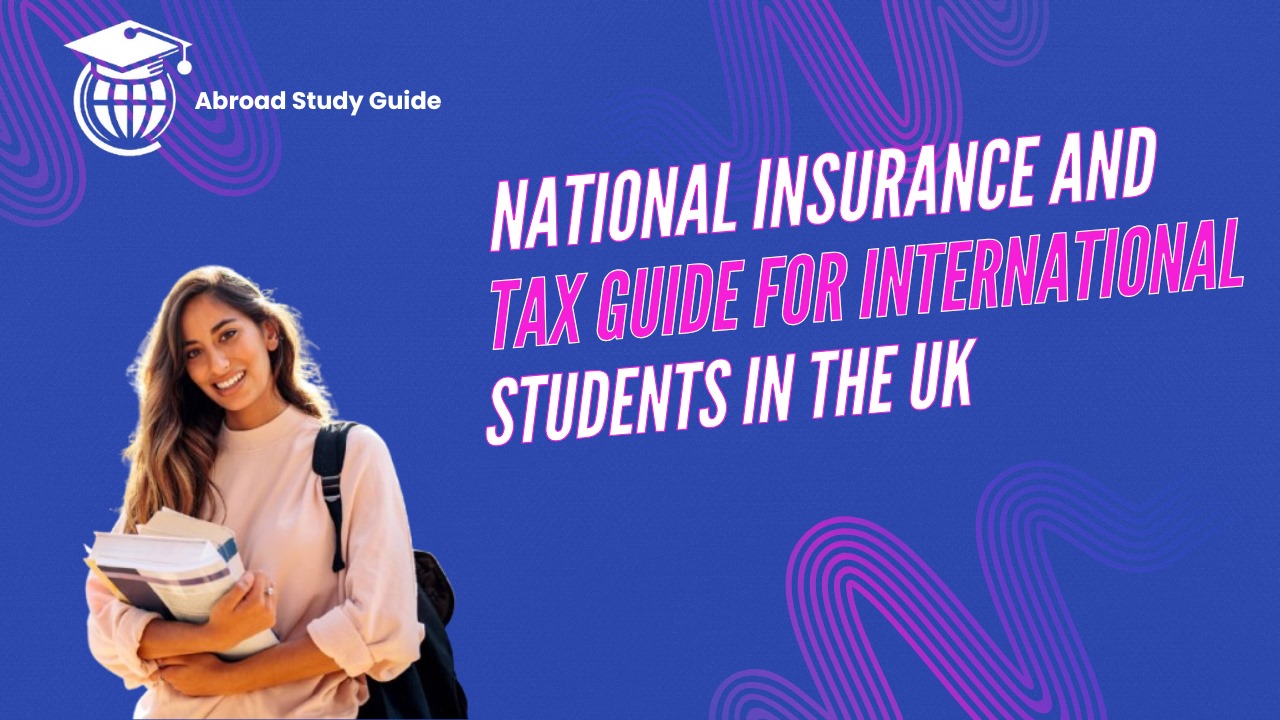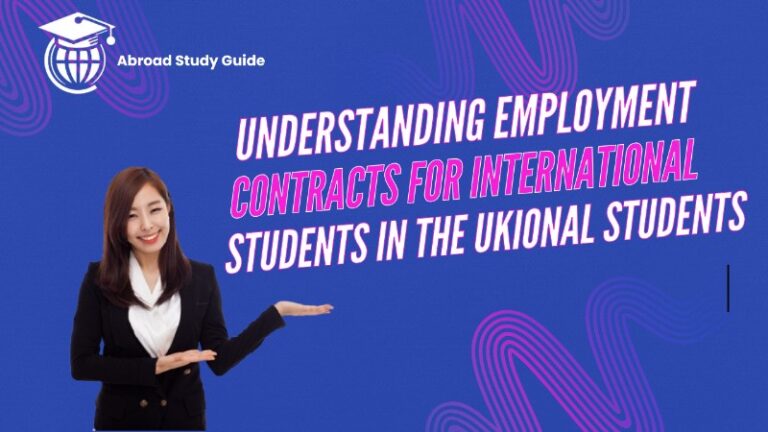Navigating the UK tax system can be challenging, especially for international students who are new to the country. Understanding the rules for income tax and National Insurance contributions (NICs) is crucial to avoid penalties and ensure compliance with the law. This UK Tax & Insurance Guide provides a comprehensive overview of the National Insurance and tax responsibilities for international students in the UK, helping you stay informed and organized.
Understanding the UK Tax System
What is the UK Tax System?
The UK tax system is designed to collect revenue for public services, including education, healthcare, and infrastructure. It is administered by HM Revenue and Customs (HMRC), which oversees all matters related to income tax, National Insurance contributions, and other taxes.
For international students, the most relevant tax is income tax, which applies to earnings from employment, self-employment, or other sources of income. Additionally, National Insurance is required for those earning above a certain threshold.
Key Terms to Know
To understand the UK tax system, you should familiarize yourself with the following key terms:
- Income Tax: A tax on money earned from jobs, self-employment, or other taxable sources.
- Personal Allowance: The amount of income you can earn before paying income tax. For most individuals, this is set annually and is often around £12,570.
- Tax Code: A code provided by HMRC to indicate the tax-free allowance and deductions for each individual. Having the correct tax code ensures you pay the right amount of tax.
International students should always check their tax code to ensure it reflects their employment status and income level accurately.
What is National Insurance (NI)?
National Insurance Contributions (NICs)
National Insurance (NI) is a system of contributions collected to fund state benefits, including pensions, healthcare, and unemployment support. For students working part-time or full-time in the UK, National Insurance contributions (NICs) may be applicable if your income exceeds specific thresholds.
Contributions are categorized into Class 1, Class 2, and Class 4, depending on employment type:
- Class 1 Contributions: Paid by employees earning over £242 per week (as of 2024).
- Class 2 and Class 4 Contributions: Applicable to self-employed individuals based on annual profits.
Who Needs to Pay National Insurance?
If you are an international student working in the UK, you must pay National Insurance contributions once your earnings surpass the threshold. However, if you are not working, you are not required to contribute to NI.
Important Points:
- Earnings Threshold: Students earning less than £242 per week are exempt from NICs.
- Contribution Rates: Rates vary based on income brackets.
Understanding your National Insurance obligations is vital for maintaining compliance with UK laws and securing future benefits.

Do International Students Pay Taxes in the UK?
Income Tax for International Students
Yes, international students working or earning income in the UK may need to pay income tax, just like UK residents. However, there are certain exemptions and allowances in place to ensure you are taxed fairly.
- Tax-Free Personal Allowance:
Every individual in the UK, including international students, has a personal allowance—the amount you can earn before paying tax. For most people, this is £12,570 annually (as of 2024). If your income remains below this threshold, you won’t need to pay income tax. - Part-Time Jobs and Tax:
Many international students work part-time while studying. If your annual earnings exceed your personal allowance, you will need to pay income tax at the standard rates:- 20% on income above the personal allowance (basic rate).
- Higher rates apply for higher income brackets, but this is rare for students.
- Scholarships and Bursaries:
Income from scholarships or bursaries is usually tax-free, provided it is used for educational purposes, such as tuition fees and living expenses.
National Insurance for International Students
In addition to income tax, international students earning above a certain threshold (£242 per week as of 2024) must pay National Insurance Contributions (NICs).
- Example Scenario: If you work a part-time job and earn £300 per week, you will pay NICs on the portion exceeding £242.
It’s important to monitor your income and ensure you are not overpaying taxes. If you believe you’ve been taxed incorrectly, you can contact HM Revenue and Customs (HMRC) to claim a tax refund.
How to Apply for a National Insurance Number
Step-by-Step Guide to Getting a National Insurance Number (NIN)
A National Insurance Number (NIN) is essential for working legally in the UK and ensuring your contributions are recorded accurately. Here’s how to apply:
- Check Eligibility:
You can apply for a NIN if you:- Are over 16 years old.
- Reside in the UK.
- Intend to work or claim benefits.
- Start the Application Online:
- Visit the official Gov.uk website and locate the NIN application section.
- Fill out the online form with your personal details, including proof of identity (passport, visa, etc.).
- Prepare for the Interview (if required):
In some cases, HMRC may ask you to attend an interview to verify your details. Bring original documents, such as:- Passport or BRP (Biometric Residence Permit).
- Proof of address (e.g., a utility bill or university accommodation letter).
- Receive Your NIN:
Once approved, you will receive your National Insurance Number by post. This process may take up to 8 weeks, so apply early.
Common Issues During Application
- Delays: Processing times can be longer during peak periods.
- Documentation Errors: Ensure all documents are accurate and match your application details.
- Lost NIN Letters: If you lose your letter, contact HMRC to retrieve your number.
Having a National Insurance Number ensures that your National Insurance Contributions (NICs) and tax payments are tracked correctly, giving you access to certain state benefits in the future.
Tax Responsibilities for International Students
Income Tax on Part-Time Jobs
As an international student working in the UK, you are required to fulfill your tax responsibilities, just like any UK resident. If you take up a part-time job, your employer will deduct income tax and National Insurance contributions (NICs) directly from your salary under the Pay As You Earn (PAYE) system.
Here’s what you need to know:
- Tax Code:
- Your employer assigns a tax code provided by HM Revenue and Customs (HMRC). This code determines how much tax should be deducted.
- Always check that your tax code is correct to avoid overpayment or underpayment.
- Thresholds for Tax Payment:
- Earnings below £12,570 (2024 personal allowance) are tax-free.
- Income above this threshold is taxed at:
- 20% for the basic rate.
- 40% for higher rates, though unlikely for most students.
- Student Jobs and Income Tax:
If you work a temporary or low-paying job during your studies, you may qualify for a tax refund if your income stays below the annual threshold.
Filing a Tax Return as an International Student
In some cases, international students may need to file a Self-Assessment tax return, such as:
- If you are self-employed.
- If you earn money outside your job (e.g., investments or freelance work).
- If you’ve overpaid taxes and want to claim a refund.
Steps to File a Tax Return:
- Register with HMRC for Self-Assessment.
- Gather necessary documents, including:
- Your P60 or P45 forms (if employed).
- Records of additional income (e.g., rental or freelance earnings).
- File your tax return online before the deadline (typically January 31 for the previous tax year).
Taking care of your tax responsibilities ensures compliance with UK law and avoids penalties.

Tax Benefits and Exemptions for International Students
Tax-Free Allowance and Exemptions
The UK tax system provides several benefits and exemptions that can reduce the financial burden for international students:
- Personal Allowance:
- As an international student, you are entitled to the same tax-free personal allowance as UK residents (£12,570 for the 2024 tax year).
- If your annual income remains below this threshold, you don’t pay income tax.
- Scholarships and Bursaries:
- Most scholarships and bursaries are tax-exempt, provided they cover tuition fees and living expenses.
- Any portion of the scholarship used for other purposes, such as investments, may be taxable.
- Non-Resident Tax Status:
- Students from countries with double taxation agreements may avoid being taxed twice on the same income.
- Check your country’s agreement with the UK to determine eligibility.
Refunds and Overpayments
Many international students find they have overpaid taxes due to errors in their tax code or PAYE deductions. You can claim a refund if:
- You worked part-time or temporarily during your studies.
- Your total annual earnings were below the personal allowance.
Steps to Claim a Refund:
- Contact HMRC and provide proof of income (e.g., pay slips, P60, or P45).
- Use the HMRC online tax refund calculator to estimate your overpayment.
- Submit a claim for a refund online or by post.
Understanding the tax benefits and ensuring you take advantage of available exemptions can save you money and reduce stress during your time in the UK.
Resources and Support for International Students
Government Resources for International Students
The UK government offers several resources to help international students understand their tax responsibilities and manage their finances:
- HM Revenue and Customs (HMRC):
- The official government body for tax and National Insurance matters.
- Provides detailed guides and tools, such as the Tax Checker, to help you determine your tax status and calculate contributions.
- Gov.uk Website:
- Centralized information about applying for a National Insurance Number, filing tax returns, and understanding tax codes.
- Access forms for tax refunds and resources on double taxation agreements.
- National Insurance Helpline:
- Offers assistance with NI applications, misplaced NI numbers, or understanding deductions.
University Support Services
Most UK universities provide specialized support services for their international students to help navigate financial and legal challenges:
- Student Advice Centres:
- Offer guidance on working while studying, understanding payslips, and tax filing.
- Organize workshops on managing finances and complying with UK tax laws.
- International Student Support Teams:
- Provide one-on-one consultations for queries related to scholarship tax exemptions or income thresholds.
- Act as mediators between students and HMRC if needed.
External Resources for Assistance
In addition to official government and university resources, these organizations are valuable:
- UK Council for International Student Affairs (UKCISA): Offers comprehensive information about working rights and taxes for international students.
- Citizen’s Advice Bureau: Provides free, impartial advice on tax, employment rights, and benefits.
- TaxAid UK: A charity assisting individuals with low incomes, including students, to resolve tax issues.
By using these resources, international students can confidently manage their tax and National Insurance responsibilities, ensuring compliance and peace of mind.
Common Mistakes to Avoid
Overlooking Tax Obligations
Many international students mistakenly believe they are exempt from UK taxes. This oversight can lead to penalties. Key points to remember:
- Earning Above the Threshold:
If your annual earnings exceed the personal allowance (£12,570 in 2024), you are legally required to pay income tax. - Failure to Register for a National Insurance Number:
Working without a valid National Insurance Number is illegal and can complicate your employment records.
Not Checking Your Tax Code
An incorrect tax code could result in overpayment or underpayment of taxes. Mistakes to avoid:
- Relying Solely on Employers: Always verify your tax code on your payslip.
- Ignoring PAYE Deductions: If deductions seem excessive, consult HMRC immediately.
Forgetting to Claim Refunds
Many students overlook the opportunity to claim a tax refund, especially if they work part-time or temporarily.
- Steps to Avoid This Mistake:
- Track your income and PAYE deductions throughout the year.
- Use the HMRC tax refund calculator to determine overpayments.
- Submit a refund request promptly after the tax year ends (April 5).
Mismanaging Double Taxation Agreements
International students from countries with double taxation agreements may fail to utilize this benefit, leading to unnecessary payments.
- Action Steps:
- Check if your country has a tax treaty with the UK.
- Submit the appropriate forms to avoid being taxed twice.
Avoiding these common mistakes ensures compliance with UK laws and helps you manage your finances effectively during your time as a student.
Conclusion
Navigating the UK’s tax system as an international student can seem challenging, but understanding the basics of tax responsibilities, National Insurance (NI), and available resources can make the process manageable. Ensure that you comply with the income tax laws, apply for a National Insurance Number, and take advantage of any tax benefits or exemptions you are eligible for.
Leverage the support from government services, university advisors, and external organizations to avoid mistakes and streamline your tax obligations. Staying informed and organized will not only save you money but also provide peace of mind during your time in the UK.
Read more How Get UK Internships

Frequently Asked Questions
Do international students have to pay taxes in the UK?
Yes, international students must pay income tax and National Insurance contributions (NICs) if their income exceeds the tax-free personal allowance (£12,570 for 2024). Taxes are deducted through the PAYE system for most jobs.
What is the tax-free personal allowance?
The tax-free personal allowance is the amount of money you can earn without paying income tax. For the 2024 tax year, this amount is £12,570.
How can I apply for a National Insurance Number?
To apply for an NI Number, you can contact the UK government’s helpline or apply online through the official Gov.uk website. You will need to provide identification and proof of your right to work in the UK.
Are scholarships taxable for international students in the UK?
Most scholarships and bursaries are tax-exempt if they are used for tuition fees or living expenses. However, any portion used for other purposes may be subject to tax.
Can international students claim a tax refund?
Yes, if you overpay taxes due to incorrect tax codes or your income remains below the annual personal allowance, you can claim a tax refund by contacting HMRC and submitting the necessary documents.






